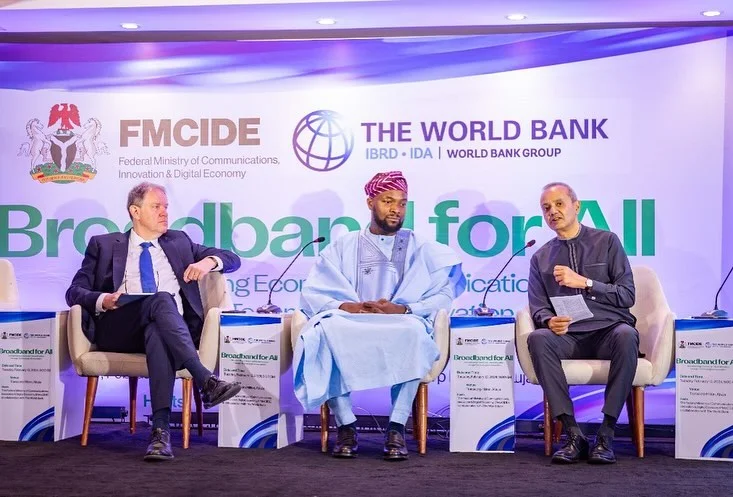Nigeria’s broadband infrastructure has been identified as a critical component for economic development and societal progress. Recognizing this, the Federal Government (FG) of Nigeria, in partnership with the World Bank, has embarked on a groundbreaking initiative to raise $3 billion to bolster the country’s broadband network.
This collaborative effort aims to bridge the digital divide, stimulate economic growth, and empower citizens through improved access to information and communication technologies (ICTs).
Read also: World Bank begins energy centre at UNN, Nsukka
The Urgent Need for Broadband Expansion in Nigeria
Nigeria, Africa’s most populous nation and largest economy faces significant challenges in its broadband infrastructure. Despite commendable progress in recent years, broadband penetration remains relatively low, with vast disparities between urban and rural areas. Insufficient connectivity hampers educational opportunities, limits business innovation, and constrains government service delivery. Addressing these gaps is imperative for Nigeria to compete effectively in the global digital economy and ensure inclusive development for all its citizens.
World Bank, Nigeria Partnership: Strategic Alliance for Progress
The collaboration between the FG and the World Bank signifies a strategic alliance aimed at accelerating Nigeria’s broadband expansion efforts. The World Bank, with its expertise in infrastructure financing and development, brings invaluable resources and technical assistance to the table. Working in tandem with the FG, the partnership leverages both parties’ strengths to mobilize the necessary funding and implement sustainable solutions for broadband infrastructure enhancement.
Key Objectives and Initiatives of the $3 Billion Investment:
A significant portion of the investment will be allocated to the construction and upgrading of broadband infrastructure across Nigeria. This includes laying fibre-optic cables, building data centres, and deploying wireless technologies to expand coverage and improve internet speeds nationwide.
Recognizing the importance of human capital in maximising the benefits of broadband connectivity, the initiative will prioritise investments in training programs and skills development initiatives. By equipping Nigerians with the requisite digital skills, the project aims to foster innovation, entrepreneurship, and job creation in the ICT sector.
World Bank Approves South Africa’s $497m Komati Repowering Loan
In addition to infrastructure and capacity building, the partnership will focus on enhancing the regulatory environment and policy frameworks governing the telecommunications sector. Streamlining regulations, promoting competition, and ensuring fair market practices are essential for fostering private-sector investment and driving sustainable broadband growth.
Lastly, the collaboration between the FG and the World Bank to raise $3 billion for Nigeria’s broadband infrastructure represents a landmark effort to address one of the country’s most pressing development challenges. By prioritising broadband expansion, Nigeria aims to unlock new opportunities for economic prosperity, social inclusion, and technological advancement. As the initiative progresses, it is essential to maintain momentum, uphold transparency, and ensure accountability to maximise the impact of this transformative investment on the lives of all Nigerians.




